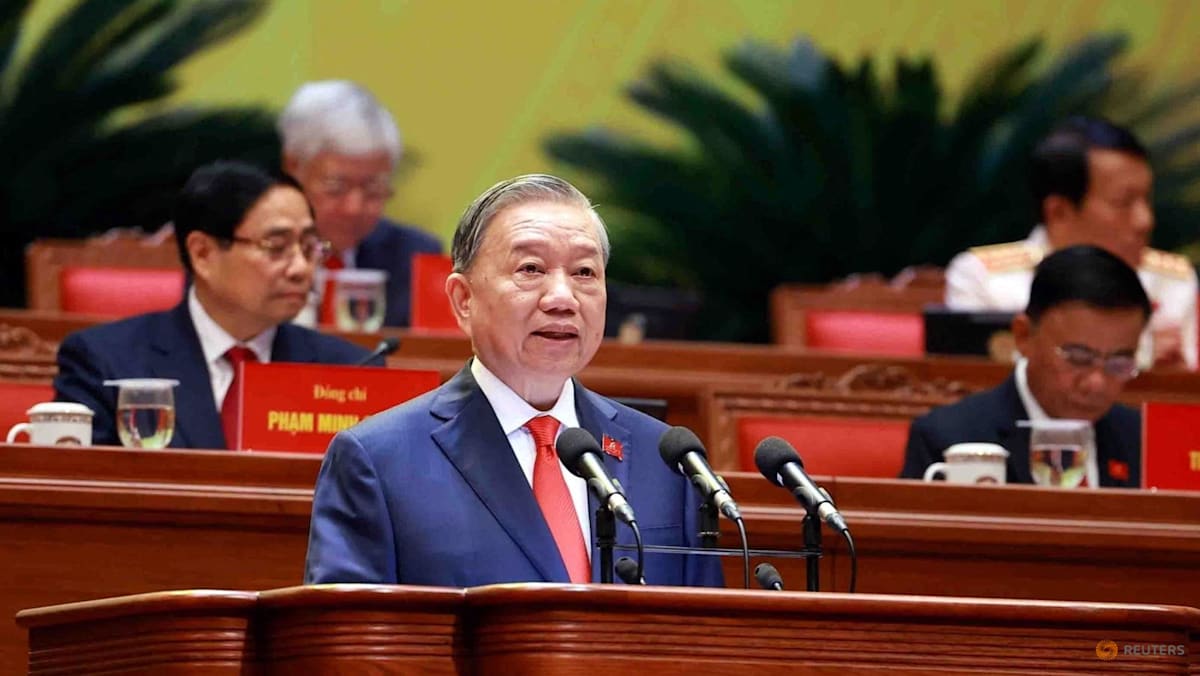Dinosaur diplomacy: What you need to know about China’s ‘renewed emphasis’ on fossil research

The sheer number and diversity of fossils being unearthed in China has been “unmatched” on a global scale, Chinese dinosaur experts said.
The Dashanpu Middle Jurassic Dinosaur Fossils Site, located in Sichuan province, is one of the richest and most renowned sites in the world – having unearthed more than 200 fossils of dinosaurs and other vertebrae to date.
Among them were fish, amphibians, sauropods and plesiosaurs, as well as the most complete skeleton of a stegosaurus dinosaur which is characterised by distinctive tail spikes and kite-shaped plates on its back.
“These invaluable fossils provide crucial material for research on dinosaur classification, physiological traits, and evolutionary history,” Huang Xinyue, deputy director of the Zigong dinosaur museum, told the Global Times.
CHINESE DINOSAUR BOOM
To date, more than 300 species of dinosaurs have been discovered and identified in China, the most of any country in the world.
According to statistics from the Institute of Vertebrate Palaeontology and Palaeoanthropology (IVPP) in Beijing, as of December 2023, China has named 343 kinds of dinosaurs.
Similarly, according to the US National Parks Service, the US and China remain the top two countries to have named the most dinosaur species, with more than 320 each.
China’s first-discovered dinosaur was the Sinosauropteryx, a small carnivorous flying dinosaur and the first-known feathered dinosaur, in the northeastern province of Liaoning by a fossil hunter named Li Yumin.
This year saw multiple dinosaur discoveries reported across the country, including 400 dinosaur footprints dating back 120 million years, that were found in Yunnan province’s Lufeng city, a hotbed for dinosaur hunting which also drives local tourism.
In January, researchers and archaeologists scoping the Yanshan Mountains in northern China unearthed a rare find – exquisitely preserved rare fossils dating back to 1.63 billion years ago, setting a world record for the oldest fossils of its kind.
The following month in February, Chinese paleontologists dug up fossils of a new dinosaur from a construction site in the city of Ganzhou in eastern Jiangxi province.
The bones were later identified to be that of a giant sauropod named the Gandititan Cavocaudatus, whose neck and tail were each believed to be longer than 5 metres.
Earlier this month, Chinese palaeontologists discovered two nearly complete dinosaur fossils in North China’s Inner Mongolia.
The groundbreaking find, named the Yuanyanglong Bainian (which translates to lovebird dragon) represents a new group of oviraptorosaurian dinosaurs, researchers said – bird-like dinosaurs known for their distinct short parrot-like skulls.
Fossils said to be of a “large aged dinosaur” were also discovered on a remote and uninhabited island in Hong Kong in October, with further studies being conducted to determine more details about the species.
Source: CNA















